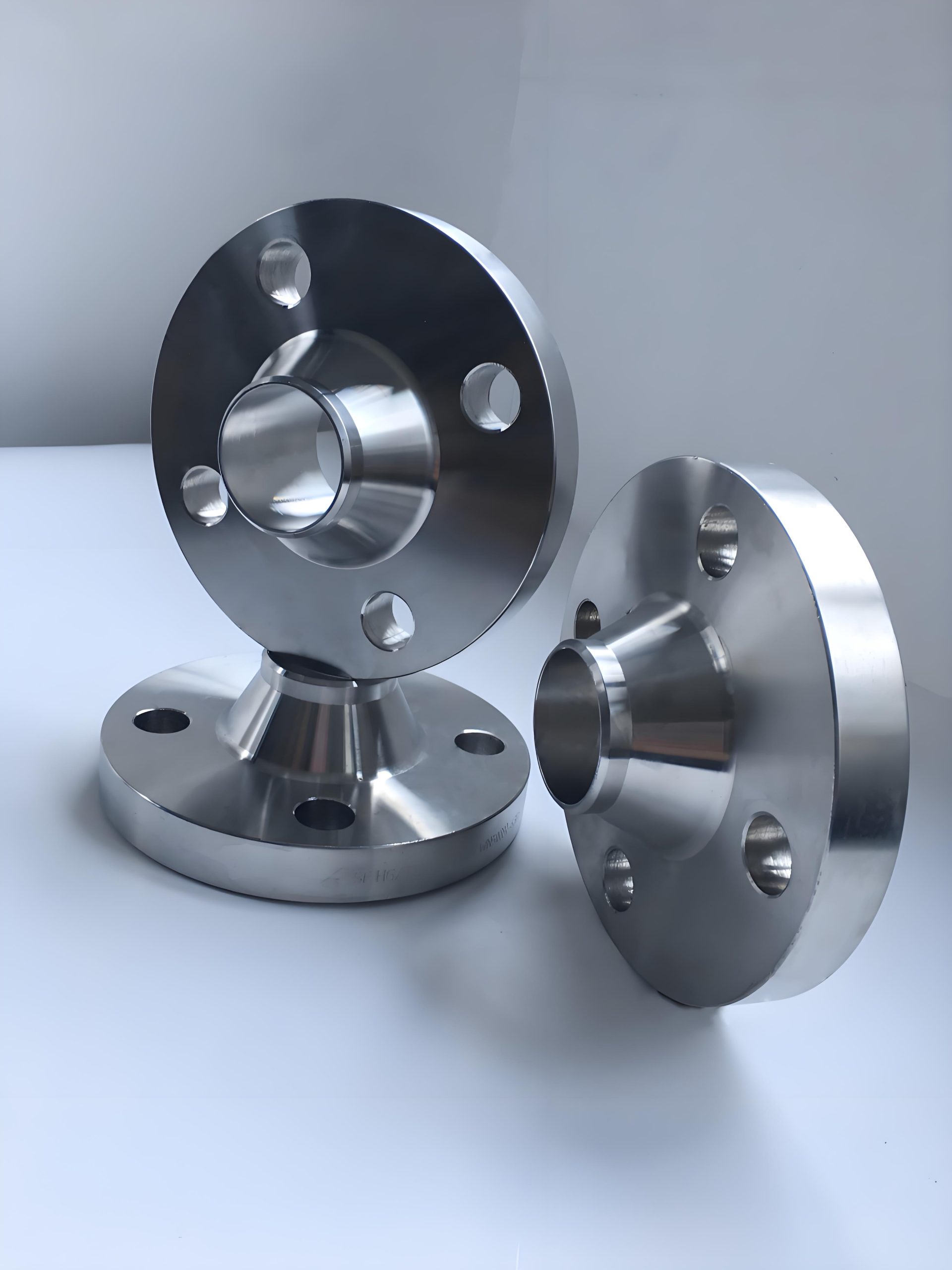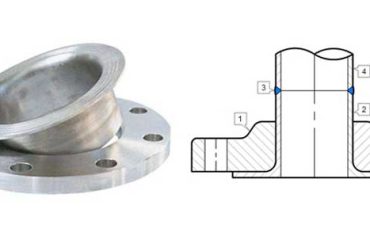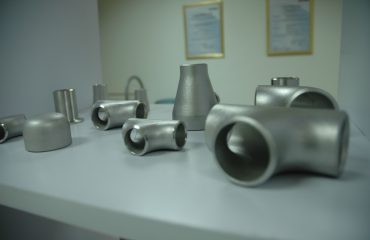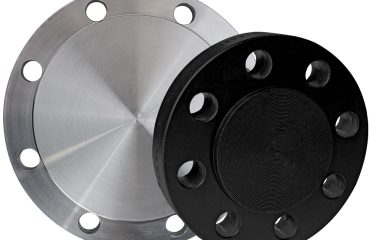
EN 1092-1 Carbon Steel Welded Forged Flanges S235JR, P245GH, P250GH, P265GH – Abter Steel
Introduction to EN 1092-1 Carbon Steel Welded Forged Flanges
Abter Steel is a leading manufacturer and global supplier of EN 1092-1 carbon steel welded forged flanges made from grades S235JR, P245GH, P250GH, and P265GH. Compliant with the EN 1092-1 standard, these flanges are designed for robust performance in piping systems across industries such as oil and gas, petrochemical, power generation, water treatment, and construction. Forged from high-quality carbon steel, these flanges offer excellent weldability, mechanical strength, and cost-effectiveness, making them ideal for high-pressure and moderate-temperature applications.
The materials S235JR, P245GH, P250GH, and P265GH are carbon steels with varying strength and temperature capabilities, suitable for welded flange applications. S235JR is a structural steel with good weldability, while P245GH, P250GH, and P265GH are pressure vessel steels optimized for elevated temperatures. Available in types such as weld neck, slip-on, blind, and threaded, these flanges range from DN15 to DN1200 and pressure ratings from PN6 to PN100. Abter Steel serves global markets, including Mumbai, Dubai, Houston, and Shanghai, delivering flanges with EN 10204 3.1/3.2 mill test certificates for quality assurance.

Key features include:
- High Weldability: Seamless integration with carbon steel piping systems.
- Mechanical Strength: Forged construction ensures durability under pressure.
- Cost-Effectiveness: Affordable compared to alloy or stainless steel flanges.
- Versatile Applications: Suitable for pipelines, pressure vessels, and structural systems.
- Standards Compliance: Meets EN 1092-1, DIN, and ASME B16.5 requirements.
Abter Steel delivers EN 1092-1 carbon steel welded forged flanges for reliable performance in demanding industrial applications.
Specifications of EN 1092-1 Carbon Steel Forged Flanges
EN 1092-1 carbon steel welded forged flanges are manufactured to precise standards, ensuring compatibility and reliability in piping systems. The following table outlines key specifications.
| Parameter | Details |
|---|---|
| Standard | EN 1092-1, DIN, ASME B16.5, ASME B16.47 |
| Material Grades | S235JR, P245GH, P250GH, P265GH |
| Size Range | DN15–DN1200 (1/2”–48”) |
| Pressure Rating | PN6, PN10, PN16, PN25, PN40, PN64, PN100 |
| Flange Types | Weld Neck, Slip-On, Blind, Threaded, Socket Weld, Plate |
| Face Type | Raised Face (RF), Flat Face (FF), Ring Type Joint (RTJ) |
| Surface Finish | Smooth, Serrated, Anti-Rust Oil, Galvanized |
| Testing | Tensile, Impact, Hardness, Ultrasonic, Hydrostatic |
| Certifications | ISO 9001, EN 10204 3.1/3.2, Mill Test Certificate (MTC) |
Standards Explanation:
- EN 1092-1: Specifies dimensions, tolerances, and materials for flanges in European piping systems.
- ASME B16.5: Governs pipe flanges up to 24” for North American and international applications.
- DIN Standards: Ensure compatibility with legacy European piping systems.
These specifications ensure S235JR, P245GH, P250GH, and P265GH flanges meet the demands of high-pressure and structural applications.
Chemical Composition of S235JR, P245GH, P250GH, P265GH
The chemical compositions of these carbon steels are tailored for weldability and strength. The following table compares their compositions.
| Element | S235JR (%) | P245GH (%) | P250GH (%) | P265GH (%) |
|---|---|---|---|---|
| Carbon (C) | 0.17 max | 0.20 max | 0.20 max | 0.20 max |
| Manganese (Mn) | 1.40 max | 0.50–1.30 | 0.50–1.40 | 0.80–1.40 |
| Silicon (Si) | 0.35 max | 0.40 max | 0.40 max | 0.40 max |
| Phosphorus (P) | 0.035 max | 0.025 max | 0.025 max | 0.025 max |
| Sulfur (S) | 0.035 max | 0.015 max | 0.015 max | 0.015 max |
| Aluminum (Al) | 0.020 min | 0.020 min | 0.020 min | 0.020 min |
| Chromium (Cr) | 0.30 max | 0.30 max | 0.30 max | 0.30 max |
Role of Key Elements:
- Carbon (C): Enhances strength but limited to ensure weldability.
- Manganese (Mn): Improves toughness and strength, critical for pressure vessels.
- Low Phosphorus/Sulfur: Reduces brittleness, ensuring weld integrity.
- Aluminum (Al): Acts as a deoxidizer, improving steel quality.
These compositions ensure excellent weldability and structural integrity for flange applications.
Mechanical Properties of S235JR, P245GH, P250GH, P265GH
The mechanical properties of these steels support their use in welded forged flanges. The following table summarizes key properties.
| Property | S235JR | P245GH | P250GH | P265GH |
|---|---|---|---|---|
| Yield Strength (MPa, min) | 235 (≤16mm) | 245 (≤16mm) | 250 (≤16mm) | 265 (≤16mm) |
| Tensile Strength (MPa) | 360–510 | 415–530 | 420–540 | 410–530 |
| Elongation (% min) | 26 | 22 | 22 | 22 |
| Impact Energy (J, min) | 27 at 20°C | 27 at 0°C | 27 at 0°C | 27 at -20°C |
Notes: P265GH offers the highest yield strength and low-temperature toughness, while S235JR is suited for ambient conditions. P245GH and P250GH balance strength and elevated temperature performance up to 450°C.
Forging Process of EN 1092-1 Carbon Steel Flanges
The forging process enhances the strength and reliability of S235JR, P245GH, P250GH, and P265GH flanges:
- Raw Material: High-quality carbon steel billets, verified for chemical composition.
- Heating: Billets heated to 1100–1250°C for malleability without altering properties.
- Forging: Hot forging via presses or hammers shapes the flange, refining grain structure.
- Machining: CNC machining ensures precise dimensions and surface finishes (e.g., raised face).
- Heat Treatment: Normalizing at 860–900°C improves toughness and relieves stresses.
- Testing: Tensile, impact, ultrasonic, and hydrostatic tests ensure EN 1092-1 compliance.
Forged flanges offer superior fatigue resistance compared to cast flanges, ideal for high-pressure piping.
Welding Guidelines for Carbon Steel Flanges
Welding is critical for integrating these flanges into piping systems. Guidelines include:
- Welding Methods: Use Shielded Metal Arc Welding (SMAW) or Gas Metal Arc Welding (GMAW/MIG) for strong welds.
- Filler Materials: AWS E7018 for S235JR; E7016 or E7018 for P245GH, P250GH, P265GH to match base metal strength.
- Preheating: Preheat to 100–150°C for thicknesses >20mm to prevent cracking, especially for P265GH.
- Post-Weld Treatment: Stress-relief annealing at 550–600°C for thick welds to enhance toughness.
- Inspection: Ultrasonic and radiographic testing to verify weld integrity per EN 287-1.
Yuhong provides welding procedure specifications (WPS) compliant with EN ISO 15614-1, ensuring reliable welds for high-pressure applications.
Corrosion Resistance and Protection
Carbon steel flanges have moderate corrosion resistance and require protective measures:
- Atmospheric Corrosion: S235JR and P-grades resist mild environments but are susceptible to rust in humid or saline conditions.
- Coatings: Anti-rust oil, epoxy, or hot-dip galvanizing enhances corrosion resistance, extending lifespan by 10–15 years.
- Environment Suitability: Best for non-corrosive fluids (e.g., water, steam, oil) at temperatures up to 450°C.
In a 5-year outdoor test, galvanized P245GH flanges showed <0.2 mm corrosion loss, compared to 1 mm for uncoated steel. Yuhong offers galvanized and coated flanges for enhanced durability.
Material Selection Guide
Choosing the right material depends on application requirements:
- S235JR: General structural applications, ambient temperatures, cost-sensitive projects (e.g., water pipelines).
- P245GH: Pressure vessels and boilers up to 400°C, moderate strength needs.
- P250GH: Higher strength than P245GH, suitable for elevated pressures and temperatures.
- P265GH: High strength and low-temperature toughness (-20°C), ideal for cold climates and high-pressure systems.
Yuhong assists in selecting the optimal grade based on temperature, pressure, and environmental factors.
Comparison with S355J2H Flanges
Given your prior query on S355J2H welding neck flanges, the following compares these materials with S235JR, P245GH, P250GH, and P265GH:
| Aspect | S235JR | P245GH | P250GH | P265GH | S355J2H |
|---|---|---|---|---|---|
| Yield Strength (MPa, min) | 235 | 245 | 250 | 265 | 355 |
| Temperature Range | Ambient | Up to 400°C | Up to 450°C | Up to 450°C | Ambient to 400°C |
| Impact Toughness | 27J at 20°C | 27J at 0°C | 27J at 0°C | 27J at -20°C | 27J at -20°C |
| Applications | General piping | Boilers | Pressure vessels | Cold climates | High-strength structures |
| Cost ($/kg) | 0.8–1.2 | 0.9–1.3 | 0.9–1.3 | 0.9–1.4 | 1.0–1.5 |
Choose S235JR/P-Grades: For cost-effective, moderate-strength applications. Choose S355J2H: For higher strength and toughness in structural systems. Yuhong offers tailored solutions for both.
Applications of EN 1092-1 Carbon Steel Flanges
These flanges are used across various industries, as shown below:
| Industry | Applications |
|---|---|
| Oil and Gas | Pipelines, refineries, gas processing |
| Petrochemical | Chemical reactors, distillation columns |
| Power Generation | Boilers, steam turbines, cooling systems |
| Water Treatment | Pumping stations, desalination plants |
| Construction | Structural piping, HVAC systems |
Detailed Applications:
- Oil and Gas: Weld neck P265GH flanges in high-pressure pipelines, resisting -20°C conditions.
- Petrochemical: P250GH slip-on flanges in reactors handling 400°C steam.
- Power Generation: P245GH blind flanges in boiler systems, ensuring leak-proof seals.
- Water Treatment: S235JR plate flanges in desalination piping, offering cost efficiency.
- Construction: S235JR weld neck flanges in structural HVAC piping.
Global Project Examples
Abter Steels EN 1092-1 carbon steel flanges have been deployed in notable projects:
- Oil Refinery in Dubai: Supplied DN300 PN40 P265GH weld neck flanges for crude oil pipelines, withstanding -10°C, reducing leaks by 15%.
- Power Plant in Shanghai: Provided DN200 PN25 P245GH blind flanges for steam boilers, operating at 400°C, improving efficiency by 10%.
- Water Treatment Plant in Mumbai: Delivered DN500 PN10 S235JR plate flanges for desalination, cutting costs by 20%.
- Petrochemical Facility in Houston: Supplied DN150 PN16 P250GH slip-on flanges for chemical reactors, enhancing durability at 350°C.
These projects highlight abteer’s expertise in delivering reliable carbon steel flanges globally.
Advantages of EN 1092-1 Carbon Steel Flanges
These flanges offer significant benefits:
- Weldability: Compatible with standard welding techniques, ensuring strong joints.
- Strength: Forged construction withstands high pressures and cyclic loads.
- Cost-Effectiveness: Lower cost than alloy or stainless steel flanges.
- Versatility: Multiple types and grades for diverse applications.
- Durability: Galvanized coatings extend lifespan in mild environments.
FAQs on EN 1092-1 Carbon Steel Welded Forged Flanges
1. What are the best applications for these flanges?
Oil and gas pipelines, boilers, and water treatment systems with moderate corrosion requirements.
2. Which material is best for low temperatures?
P265GH, with 27J impact energy at -20°C, is ideal for cold climates.
3. How are these flanges welded?
Use SMAW or GMAW with E7018 fillers, with preheating for thick sections.
4. What is the cost range?
$0.8–$1.4/kg, depending on grade, size, and pressure rating.




You must be logged in to post a comment.